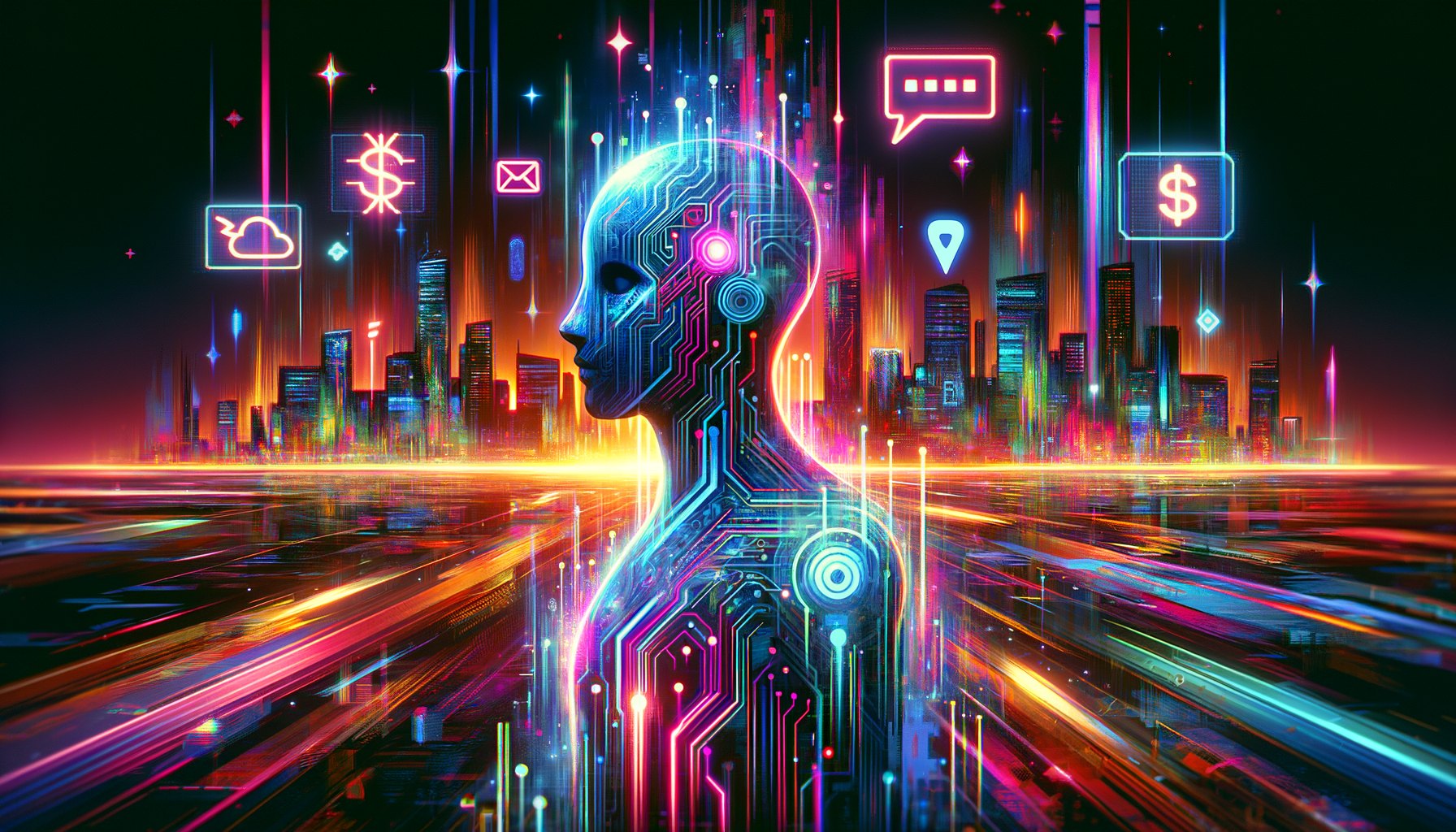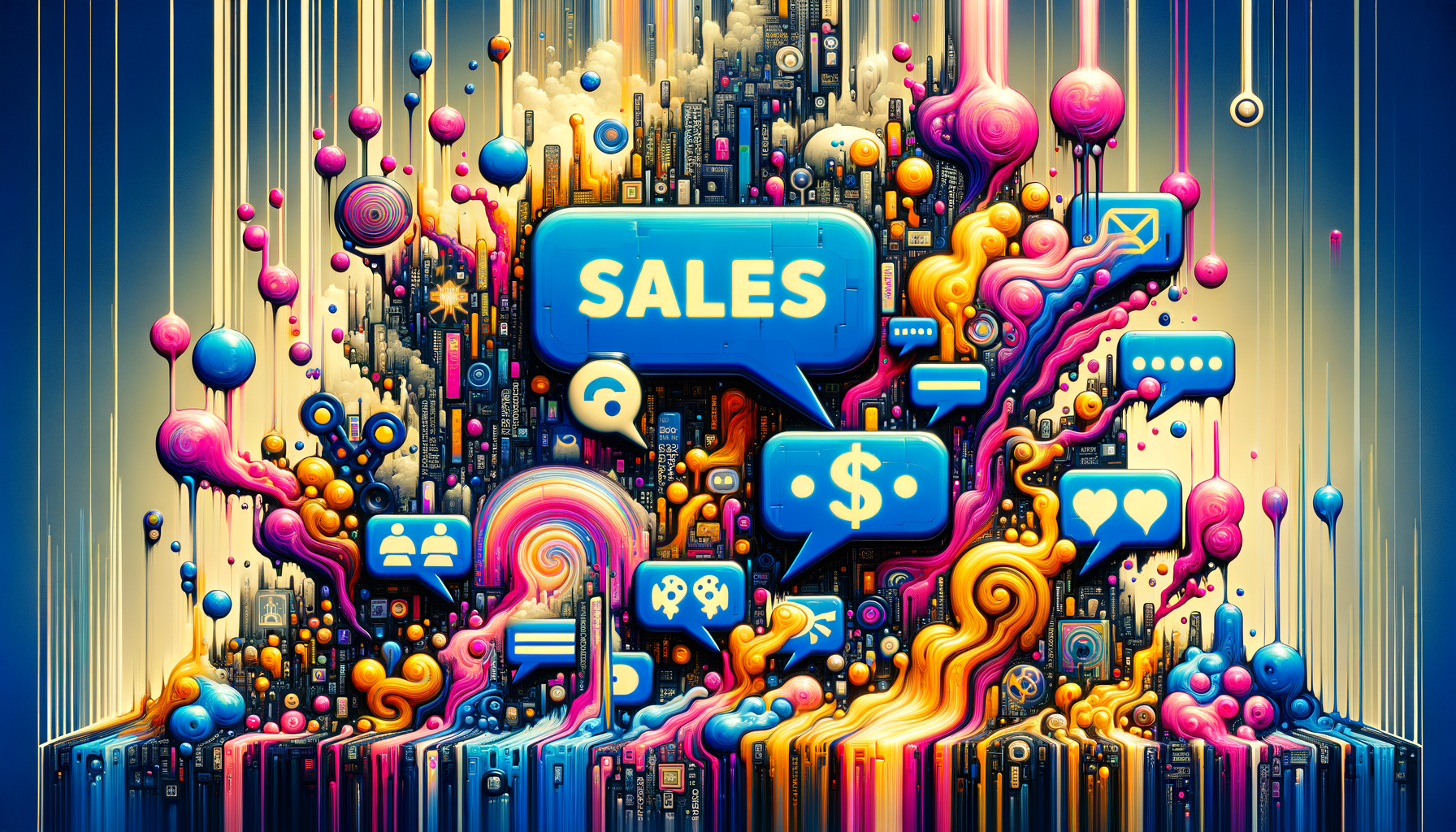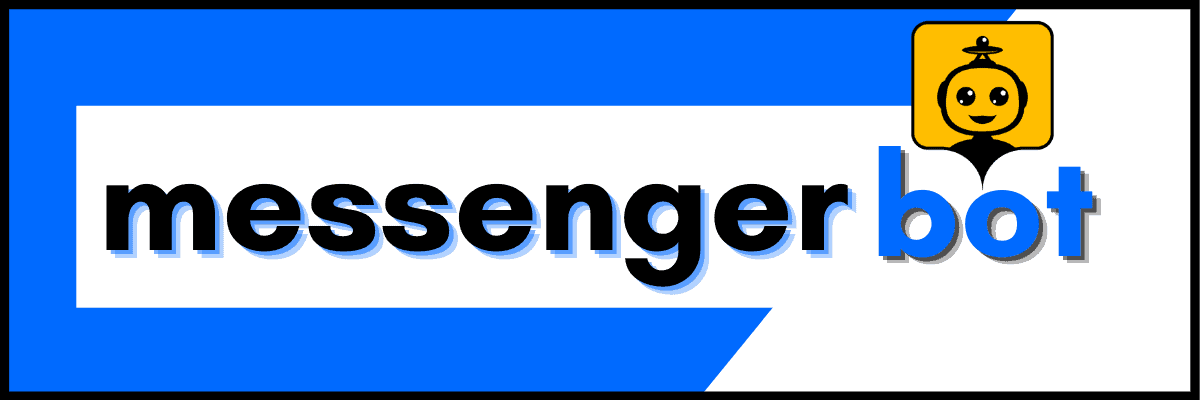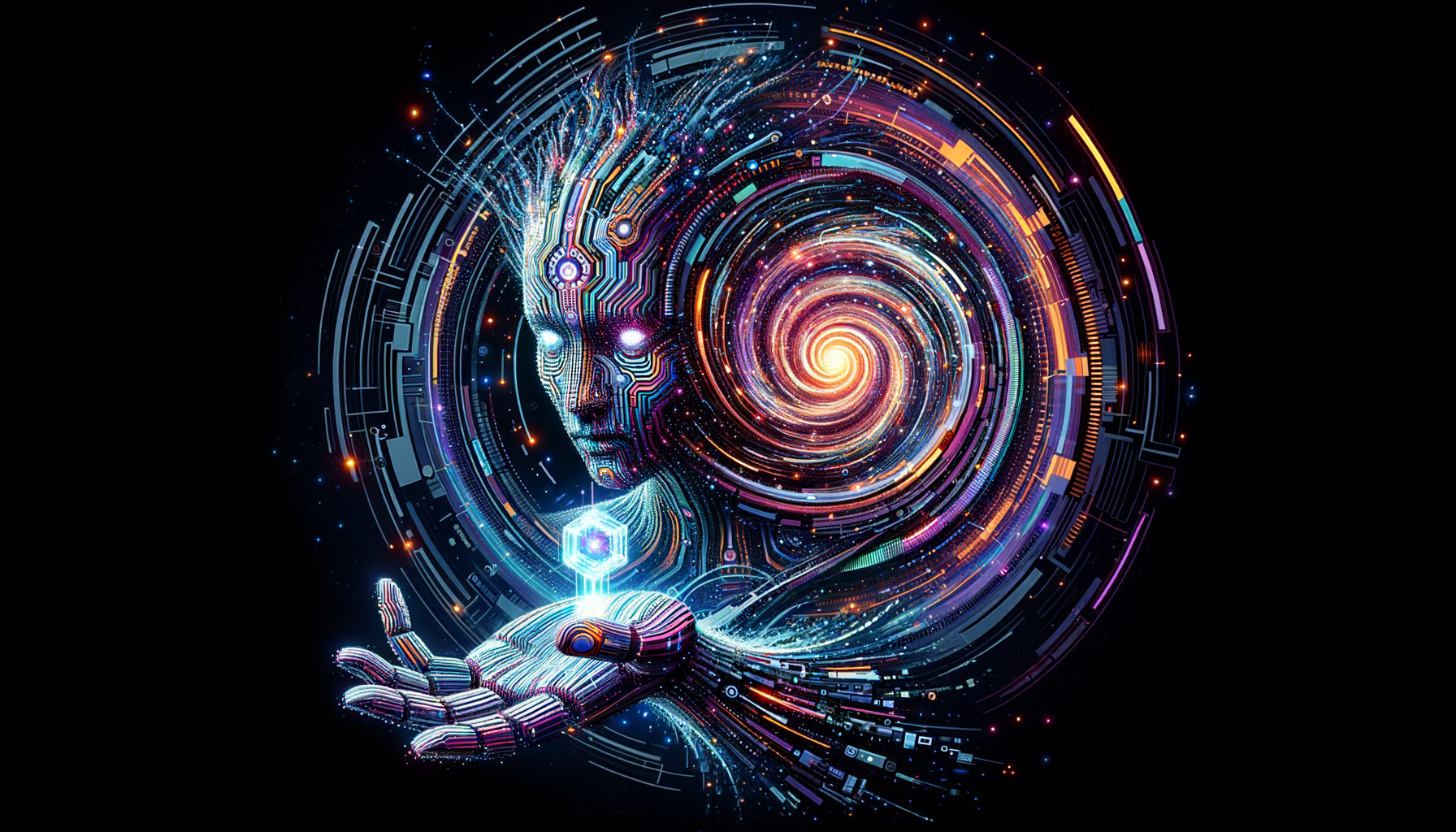In today’s fast-paced digital landscape, businesses are constantly seeking innovative ways to streamline their sales processes and enhance customer engagement. One cutting-edge solution that has emerged as a game-changer is the implementation of “best chatbot solutions”. These AI-powered virtual assistants are revolutionizing how companies interact with customers, offering round-the-clock support, personalized recommendations, and seamless sales experiences. By leveraging the power of “top chatbot platforms” and “chatbot best examples”, savvy businesses can gain a significant competitive edge, boosting conversions and cultivating long-lasting customer relationships. This comprehensive guide delves into the world of “best chatbots”, exploring the “best chatbot platform” options, “chatbot examples” that showcase their capabilities, and real-world “chat bot examples” from industry leaders like Walmart.
1. What is the best retail chatbot?
1.1 Exploring Top Chatbot Platforms for Retail Sales
As a cutting-edge automation platform, I understand the importance of seamlessly integrating AI-powered chatbots into retail operations to enhance customer experiences and drive sales. The retail industry is rapidly embracing conversational AI solutions, and selecting the right chatbot platform can be a game-changer for businesses.
When it comes to identifying the “best retail chatbot,” it’s essential to evaluate various options based on your specific business requirements, such as ease of use, integration capabilities, natural language processing (NLP) prowess, and scalability. Here are some top-rated chatbot platforms for retail sales:
- Tidio: Offering a user-friendly live chat and chatbot builder with advanced automation, integrations, and analytics, Tidio is an excellent choice for e-commerce businesses and customer support teams.
- Ada: Powered by AI and natural language processing, Ada excels at handling complex queries and providing personalized experiences, making it a valuable asset for retailers.
- Botkit: As an open-source chatbot development platform, Botkit allows for custom bot creation and integration with various messaging channels, catering to unique retail needs.
- Pandorabots: With a visual dialog editor, multilingual support, and advanced NLP capabilities, Pandorabots offers a versatile chatbot platform for retailers seeking a tailored solution.
- Chatfuel: Chatfuel’s no-code chatbot builder, templates, and integrations with popular messaging apps like Facebook Messenger and Telegram make it an accessible option for retailers looking to quickly deploy chatbots.
The key is to align the chosen chatbot solution with your business goals, such as improving customer engagement, automating order processing, or providing 24/7 support. Continuously evaluating the chatbot’s performance metrics and seeking customer feedback can help optimize its effectiveness and ensure a seamless retail experience.
1.2 “Chat bot examples” and Features for Boosting Conversions
To illustrate the power of chatbots in the retail sector, let’s explore some compelling “chatbot examples” and features that can boost conversions:
- Product Recommendations: Leveraging AI and machine learning, chatbots can analyze customer preferences and browsing history to provide personalized product recommendations, increasing the likelihood of successful purchases.
- Order Tracking and Updates: Customers can seamlessly track their orders and receive real-time updates through chatbots, enhancing transparency and fostering trust in your brand.
- Abandoned Cart Recovery: Chatbots can proactively engage with customers who have abandoned their shopping carts, offering assistance, addressing concerns, and ultimately recovering potential sales.
- Conversational Commerce: By enabling natural language interactions, chatbots facilitate a conversational shopping experience, allowing customers to browse, ask questions, and complete purchases effortlessly.
- Multilingual Support: With multilingual capabilities, chatbots can cater to a diverse global customer base, breaking down language barriers and providing a consistent experience across various regions.
Implementing these “chatbot examples” and features can significantly enhance the customer journey, leading to increased engagement, improved customer satisfaction, and ultimately, higher conversion rates for your retail business.

2. What is the best chatbot right now?
2.1 Evaluating the “Best Chatbot” Solutions of 2023
In today’s rapidly evolving technological landscape, chatbots have emerged as game-changers, revolutionizing how businesses interact with their customers. The quest to identify the “best chatbot” is an ongoing pursuit, driven by the ever-increasing demand for seamless, personalized, and intelligent conversational experiences.
At Messenger Bot, we understand the importance of staying ahead of the curve and offering our clients the most advanced chatbot solutions. As such, we constantly evaluate and integrate the latest advancements in natural language processing (NLP) and artificial intelligence (AI) to ensure our chatbot platform remains at the forefront of innovation.
When assessing the “best chatbot” options for 2023, it’s crucial to consider factors such as conversational fluency, contextual understanding, task-handling capabilities, and the ability to integrate with existing systems seamlessly. Additionally, the chatbot’s capacity for continuous learning and adaptation is paramount, as it ensures the solution remains relevant and effective in an ever-changing business landscape.
According to industry experts and AI researchers, some of the most advanced and versatile chatbots in 2023 include Brain Pod AI’s state-of-the-art language models like Claude and Delphi, Google’s LaMDA, DeepMind’s Sparrow, OpenAI’s ChatGPT, and Meta’s BlenderBot 3. These cutting-edge chatbots are pushing the boundaries of conversational AI, leveraging the latest advancements in natural language processing, machine learning, and ethical AI development.
2.2 “Chatbot Example” Showcases: AI-Driven Sales Assistants
One area where chatbots have demonstrated their immense potential is in sales and customer support. AI-driven sales assistants have become indispensable tools for businesses, enabling them to provide 24/7 assistance, answer inquiries promptly, and guide customers through the sales process with personalized recommendations.
At Messenger Bot, we have integrated some of the most advanced chatbot technologies into our sales chatbot solutions. Our AI-powered chatbots can engage in natural, context-aware conversations, understanding the nuances of language and providing relevant, tailored responses.
For instance, our conversational AI chatbots can assist customers in product research, offer personalized recommendations based on their preferences and purchase history, and even facilitate secure transactions directly within the chat interface. This seamless experience not only enhances customer satisfaction but also drives sales and improves conversion rates.
Moreover, our sales chatbots leverage machine learning algorithms to continuously improve their performance, adapting to customer behavior patterns and refining their responses over time. This ensures that our clients’ customers receive an ever-evolving, highly personalized, and efficient service, setting new standards for customer experience in the digital age.
3.1 Comparing ChatGPT to Other “Chatbots Examples”
While ChatGPT has garnered significant attention for its impressive language capabilities, it’s not the only chatbot or AI language model vying for supremacy in the field. Several notable alternatives have emerged, each with its unique strengths and potential to outperform ChatGPT in specific areas. As we explore the realm of chatbots, it’s crucial to keep an open mind and evaluate each solution based on its merits and suitability for the desired use case.
One prominent contender is Anthropic’s Claude, a large language model trained on diverse data sources, including academic materials and online forums. Claude has garnered praise for its ability to engage in substantive conversations while prioritizing truthfulness and ethical principles. Its commitment to transparency and safety makes it a compelling option for businesses seeking a reliable and responsible conversational AI assistant.
Another noteworthy chatbot is Google’s LaMDA (Language Model for Dialogue Applications). Developed by the tech giant, LaMDA has demonstrated impressive language understanding and generation capabilities, enabling open-ended dialogues across various topics. While LaMDA has raised concerns about potential biases and ethical implications, its language prowess positions it as a formidable competitor in the chatbot arena.
DeepMind’s Chinchilla, a subsidiary of Alphabet (Google’s parent company), is another language model worth considering. Trained on a massive amount of data, Chinchilla has demonstrated strong performance in various natural language processing tasks. Although not primarily designed as a chatbot, its language abilities make it a potential candidate for conversational AI applications.
While not yet released, OpenAI’s GPT-4 is highly anticipated as a significant upgrade over the current GPT-3 model that powers ChatGPT. With promised improvements in reasoning, multi-modal understanding, and factual accuracy, GPT-4 could potentially become a formidable contender in the chatbot space upon its release.
It’s important to note that evaluating and comparing chatbots is a complex task, as their performance can vary depending on the specific use case, training data, and underlying architecture. Additionally, factors such as safety, ethical considerations, and potential biases should be carefully examined when assessing chatbots or language models.
3.2 “Example of Chatbot” Solutions Outperforming ChatGPT for Sales
In the realm of sales, where personalized interactions and effective communication are paramount, certain chatbot solutions have demonstrated their ability to outshine ChatGPT in specific areas. By leveraging advanced natural language processing (NLP) and machine learning techniques, these chatbots can provide tailored sales assistance, lead generation, and customer engagement strategies that drive tangible business results.
One such example of a chatbot that has gained traction in the sales industry is Brain Pod AI’s Multilingual AI Chat Assistant. This cutting-edge solution offers seamless language translation capabilities, enabling businesses to engage with customers and prospects across various linguistic barriers. By breaking down communication barriers, Brain Pod AI’s chatbot facilitates global sales efforts, enhancing lead generation and customer acquisition on an international scale.
Another compelling chatbot example is Messenger Bot, a sophisticated platform designed to enhance digital communication and streamline sales processes. Leveraging AI-driven technology, Messenger Bot provides real-time, automated responses to inquiries across social media platforms and websites. This powerful tool enables businesses to generate leads cost-effectively, utilizing interactive and engaging messenger-based marketing strategies.
While ChatGPT excels in general language tasks, these specialized chatbot solutions offer tailored functionalities that cater to the unique demands of the sales landscape. From multilingual support to targeted lead generation and customer engagement strategies, these “chatbots examples” demonstrate the potential to outperform ChatGPT in driving sales growth and enhancing customer experiences.
As the demand for personalized and efficient sales interactions continues to rise, businesses are increasingly turning to these specialized chatbot solutions to gain a competitive edge. By leveraging the power of AI and tailored functionalities, companies can unlock new opportunities for lead generation, customer engagement, and ultimately, increased sales revenue.
4. Which ChatGPT is best?
4.1 Dissecting the “Examples of Chatbot” Offerings from ChatGPT
When it comes to ChatGPT, the conversational AI model developed by OpenAI, there are several offerings and capabilities that stand out as industry-leading “examples of chatbot” solutions. One of the key strengths of ChatGPT is its broad knowledge base, allowing it to engage in intelligent conversations across a wide range of topics, from creative writing and coding to analysis and problem-solving.
Within the realm of sales and customer support, ChatGPT’s ability to provide personalized and contextual responses makes it a powerful “chatbot example” for businesses looking to enhance their customer experience. Its natural language processing capabilities enable it to understand complex queries and provide relevant, tailored responses, streamlining the support process and improving customer satisfaction.
Additionally, ChatGPT’s language generation abilities make it a valuable asset for content creation, marketing, and sales enablement tasks. It can assist in crafting compelling marketing materials, product descriptions, and even sales scripts, ensuring a consistent and engaging brand voice while saving time and resources.
4.2 “Chatbot Examples” Beyond ChatGPT: Tailored Sales Bots
While ChatGPT offers a comprehensive and versatile solution, there are also specialized “chatbot examples” designed explicitly for sales and customer support scenarios. These tailored “best chatbot” platforms often integrate advanced features like AI-powered writing assistants, lead qualification, and e-commerce integrations, providing a more streamlined and targeted experience for businesses in specific industries.
One such “chatbot example” is Drift, a conversational marketing platform that leverages AI to engage website visitors, qualify leads, and facilitate real-time sales conversations. By offering a personalized and immediate experience, Drift’s chatbots can significantly improve conversion rates and accelerate the sales cycle.
Another notable “best chatbot platform” is Intercom, which combines chatbots with live human support to create a seamless customer experience. Intercom’s chatbots can handle routine inquiries, freeing up human agents to focus on more complex issues, while also providing valuable insights into customer behavior and preferences.
Ultimately, the “best chatbot” for your business will depend on your specific needs, industry, and target audience. While ChatGPT offers a robust and versatile solution, exploring specialized “chatbot examples” and “best chatbot platforms” tailored to sales and customer support can unlock even greater efficiencies and enhanced customer experiences.

5. What chatbot does Walmart use?
Walmart has embraced the power of conversational AI by implementing a chatbot named “Ask Sam” to assist its in-store associates. This innovative AI chat assistant serves as a virtual helper, enabling employees to efficiently navigate various tasks and queries within the retail environment.
5.1 Walmart’s “Best Chatbots” Strategy: Boosting Customer Experience
By leveraging cutting-edge natural language processing and machine learning capabilities, Brain Pod AI’s Ask Sam chatbot empowers Walmart associates to deliver exceptional customer service. This best chatbot solution streamlines in-store operations, enhancing productivity and ensuring consistent, accurate information delivery.
Ask Sam’s core functionalities include:
- Locating specific products within the store and providing their locations.
- Retrieving accurate pricing information for merchandise.
- Answering queries related to work schedules and shift timings.
- Offering guidance on store policies, procedures, and operational protocols.
- Providing real-time inventory updates and stock availability details.
- Assisting with customer service inquiries and troubleshooting issues.
By integrating this advanced AI-powered customer service bot, Walmart has elevated the in-store experience for both associates and customers, fostering a more efficient and informed shopping environment.
5.2 “Chat Bot Platform” Case Study: Walmart’s Sales Chatbot Success
Walmart’s strategic deployment of Ask Sam, a cutting-edge whitelabel chatbot platform, has proven to be a game-changer in the retail industry. By harnessing the power of conversational AI, Walmart has successfully streamlined operations, boosted employee productivity, and enhanced customer satisfaction.
One of the key advantages of this best chatbot solution lies in its ability to provide instant, accurate information to associates. Whether it’s locating a specific product, retrieving pricing details, or answering policy-related queries, Ask Sam ensures that employees have the necessary knowledge at their fingertips, minimizing the need for time-consuming manual searches or consultations.
Moreover, by leveraging real-time inventory updates and stock availability data, Ask Sam empowers associates to provide customers with up-to-date information, reducing frustration and improving the overall shopping experience. This proactive approach to customer service has contributed to increased customer loyalty and repeat business for Walmart.
The success of Ask Sam at Walmart serves as a testament to the transformative potential of AI chatbot customer service in the retail sector. By embracing cutting-edge technology and integrating it seamlessly into their operations, Walmart has set a benchmark for delivering exceptional customer experiences and driving operational efficiency.
6. Which chatbot is better than chat GPT?
6.1 Comparing “Chatbots Platforms” to ChatGPT for Sales Optimization
In the realm of conversational AI, ChatGPT has undoubtedly been a groundbreaking innovation, captivating users worldwide with its remarkable language capabilities. However, as the field of AI rapidly evolves, several chatbot platforms are emerging that offer unique advantages and specialized features tailored for sales optimization, potentially outperforming ChatGPT in this specific domain.
One such platform is Brain Pod AI, which has developed a suite of AI solutions, including a multilingual AI chat assistant. This assistant not only excels in natural language processing but also boasts advanced capabilities in understanding context, retaining conversational memory, and seamlessly handling follow-up queries – all critical components for effective sales interactions.
Another contender is Intercom, a leading conversational marketing platform that combines chatbot examples with robust analytics and automation features. Intercom’s messenger bots are designed to nurture leads, qualify prospects, and streamline the sales process, making it a compelling choice for businesses seeking a comprehensive sales optimization solution.
While ChatGPT excels in general language tasks, platforms like Brain Pod AI and Intercom offer specialized capabilities tailored for sales and customer engagement. By leveraging advanced conversational AI, contextual understanding, and robust integration with existing sales workflows, these chatbot service providers can potentially outperform ChatGPT in driving measurable results for sales teams.
6.2 “Best Chatbot Platform” Alternatives to ChatGPT: “Chatbot Best Examples”
As the demand for AI-driven sales optimization grows, numerous chatbot solutions have emerged as compelling alternatives to ChatGPT, each offering unique features and specializations. Here are some of the “best chatbot platforms” that businesses should consider:
- Drift: With a focus on conversational marketing, Drift’s AI-powered chatbots excel at qualifying leads, scheduling meetings, and nurturing prospects through the sales funnel.
- Ada: Offering a robust AI chatbot platform, Ada is designed to handle complex customer inquiries, automate routine tasks, and provide personalized experiences across multiple channels.
- Salesforce Einstein: Seamlessly integrated with Salesforce’s CRM, Einstein’s AI chatbots leverage customer data to deliver tailored recommendations, automate lead scoring, and streamline the sales process.
- Zendesk: With a focus on customer support, Zendesk’s AI chatbot offerings include advanced natural language processing, sentiment analysis, and seamless integration with existing support workflows.
These “best chatbot examples” demonstrate the diverse range of specialized solutions available, each tailored to address specific business needs and sales objectives. By leveraging the strengths of these platforms, companies can enhance lead generation, streamline sales processes, and ultimately drive revenue growth through AI-powered automation and personalized customer interactions.
7. “Best Chatbot Solutions” for Sales: “Top Chatbot Platforms” Evaluated
In today’s fast-paced business landscape, chatbot solutions have emerged as powerful tools for driving sales and enhancing customer engagement. As AI technology continues to advance, businesses are turning to top chatbot platforms to streamline their sales processes and provide personalized experiences to their customers.
When it comes to selecting the “best chatbot solutions” for your business, there are several key factors to consider. Firstly, the chatbot platform should offer seamless integration with your existing sales and marketing channels, ensuring a cohesive and consistent experience for your customers. Additionally, the platform should be equipped with advanced natural language processing (NLP) capabilities, enabling the chatbot to understand and respond to customer queries with human-like accuracy.
One of the standout chatbot platforms in the market is Brain Pod AI, which offers a comprehensive suite of generative AI tools, including a powerful AI chat assistant. Their multilingual chatbot solution is designed to cater to global audiences, enabling businesses to communicate with customers in their preferred languages. Brain Pod AI’s chatbots are trained on vast amounts of data, ensuring that they can provide accurate and relevant responses to a wide range of queries.
7.1 Maximizing Sales with “Best Chatbots Examples” and “Bot Responses Examples”
To truly harness the power of chatbots for sales, it’s essential to understand the best practices and examples of successful chatbot implementations. One of the key advantages of chatbots is their ability to engage with customers in real-time, providing instant responses to inquiries and guiding them through the sales process.
Successful chatbot examples often involve the integration of personalized recommendations, product suggestions, and upselling opportunities based on customer preferences and behavior. By leveraging bot response examples tailored to your industry and target audience, businesses can create engaging and intuitive conversational experiences that drive sales and foster customer loyalty.
7.2 Future of “Best Chatbots Platforms” for Businesses: “Sales Chatbot AI” Innovations
As AI technology continues to evolve, the future of best chatbot platforms for businesses holds exciting possibilities. One of the most promising innovations is the integration of advanced machine learning algorithms that can analyze customer data and interactions to continuously improve the chatbot’s responses and recommendations.
Additionally, the rise of sales chatbot AI solutions with multimodal capabilities, such as the ability to process and respond to voice commands, images, and videos, will further enhance the customer experience and drive sales. As businesses embrace these cutting-edge technologies, they will be better equipped to provide seamless, personalized, and engaging interactions that drive customer loyalty and revenue growth.




